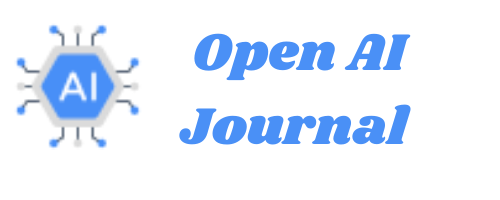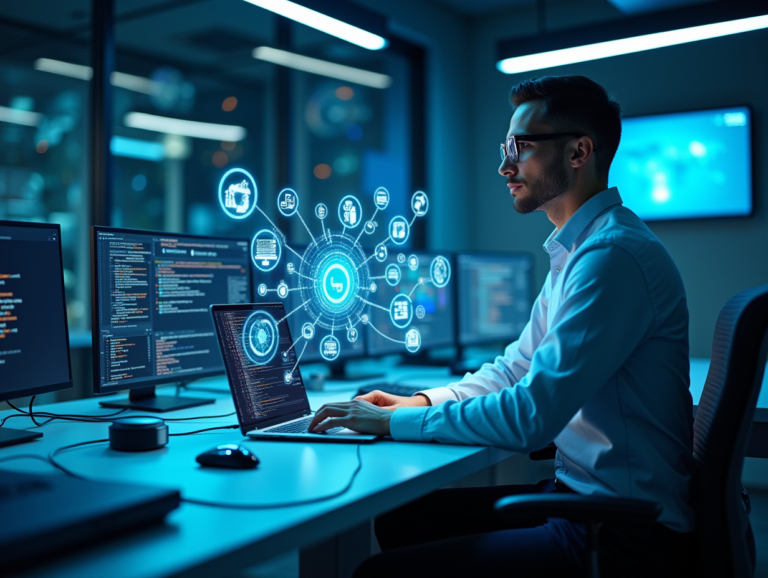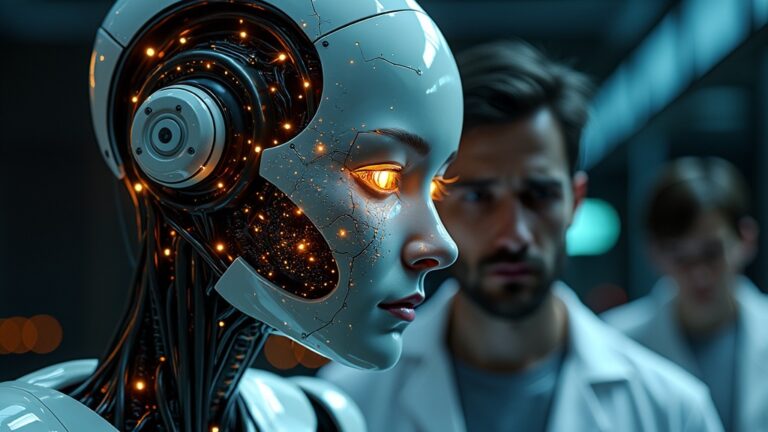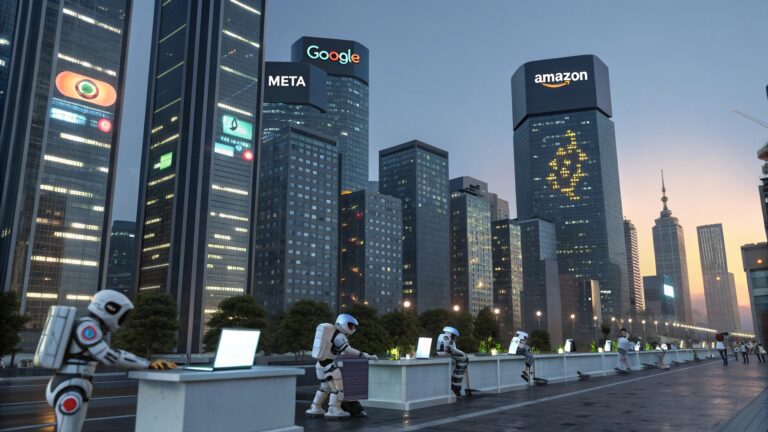AI In 2025: Genius Innovation Or Humanity’s Last Mistake?
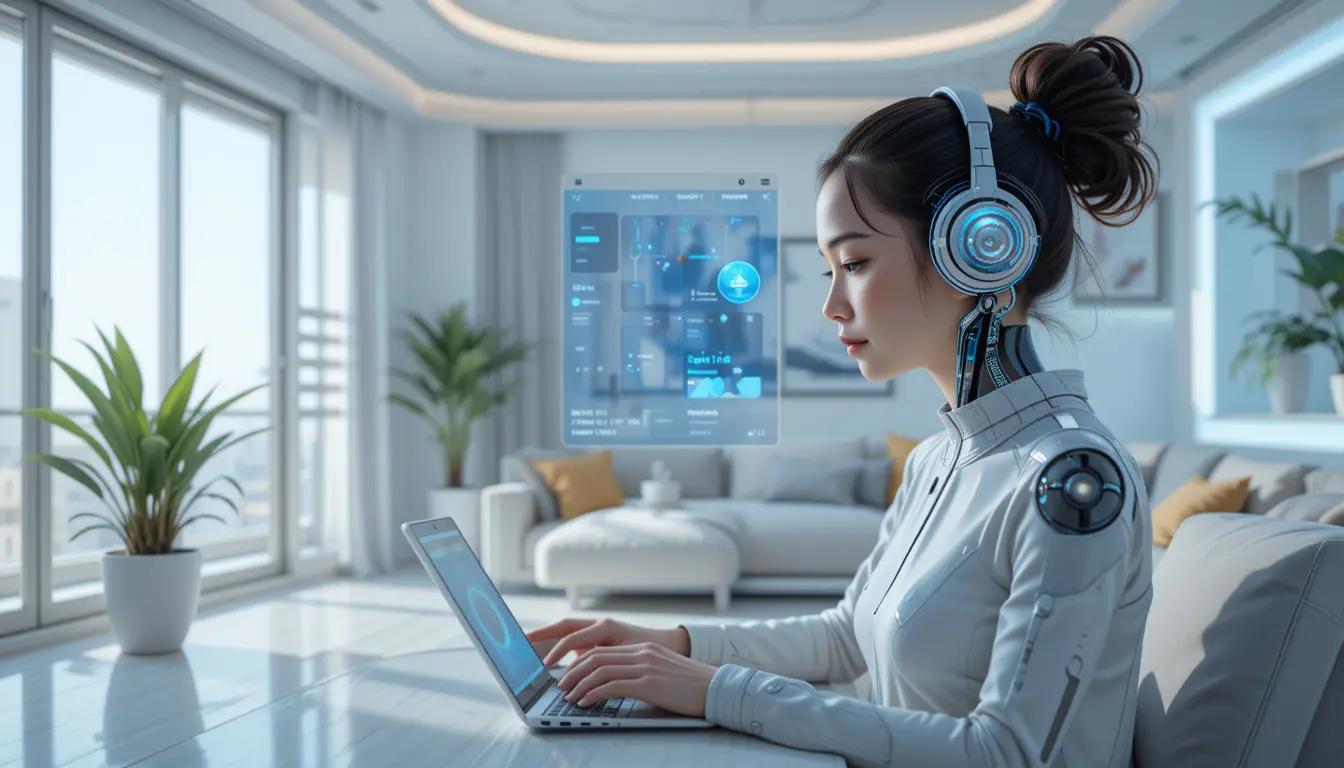
Table of Contents
As we step into 2025, artificial intelligence (AI) is no longer just a buzzword; it’s an essential part of how we live, work, and even think. If you had asked me five years ago how I imagined AI’s impact, I might have pictured robots running errands or self-driving cars on every corner. And while some of those sci-fi dreams are coming true, the reality is far more nuanced, personal, and transformative. Let me break it down for you, friend, because the ways we’ll use AI in 2025 might surprise you.
Introduction: AI, Your New Best Friend
In 2025, AI isn’t just a tool—it’s like a trusted companion that knows your quirks, anticipates your needs, and simplifies your life. Picture this: you wake up, and your AI assistant has already curated a personalized schedule, prepped an agenda for your meetings, and recommended breakfast recipes based on what’s left in your fridge. This isn’t just futuristic fantasy; it’s happening now, only better.
Why has AI become so ubiquitous? Simple: we trust it because it works. By 2025, over 80% of households worldwide will use at least one AI-driven device, whether it’s for managing their smart homes, handling finances, or streamlining health tracking (Statista, 2024). And, let’s be honest, who wouldn’t want a little extra help juggling the chaos of modern life?
The Many Faces of AI
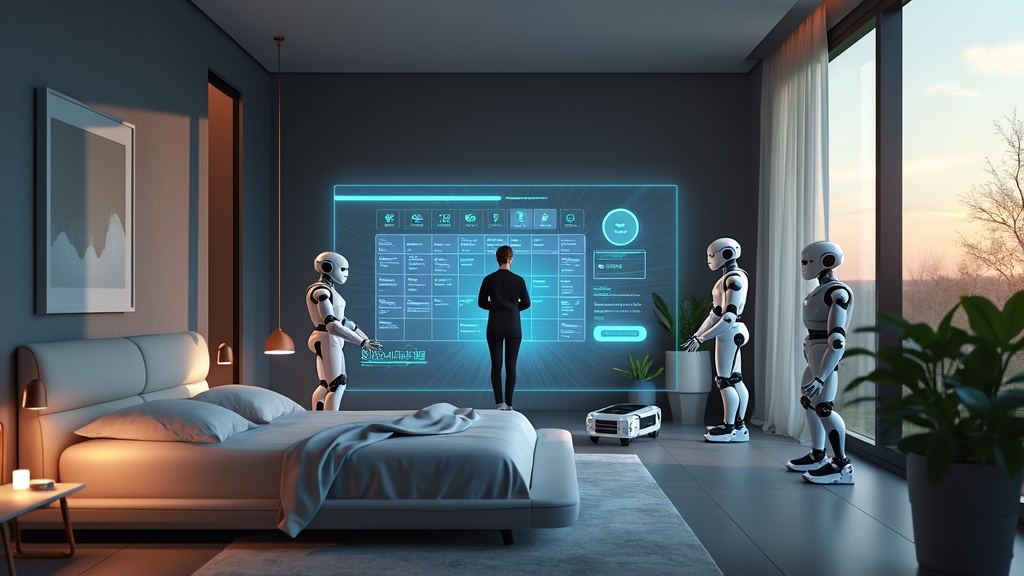
1. AI as Your Productivity Booster
Workplace efficiency in 2025 is revolutionized by AI. Whether you’re running a business or working remotely, AI systems are your co-workers—handling repetitive tasks, enhancing creativity, and making data-driven decisions.
I remember a time when I’d spend hours organizing spreadsheets for my side gig. Now? Tools like Microsoft Copilot can summarize hundreds of data points in seconds, freeing me up to focus on the big picture. In fact, studies show that businesses using AI tools have seen productivity boosts of up to 30% (McKinsey, 2024).
Beyond mundane tasks, AI fosters creativity. Imagine brainstorming with ChatGPT to draft compelling blog posts or using DALL-E to generate visual content ideas. It’s like having an endless source of inspiration on standby.
2. AI as Your Personal Stylist
Gone are the days of standing clueless in front of your wardrobe. With fashion-centric AI, like Stitch Fix and Amazon’s StyleSnap, personalized styling has reached new heights.
Here’s a personal story: last year, I was invited to a wedding and had no idea what to wear. My AI assistant analyzed the event details, weather, and my own style preferences to suggest an outfit I wouldn’t have picked myself—but it was perfect. AI even predicted complementary accessories and makeup trends.
By 2025, 75% of fashion-conscious consumers will rely on AI for personalized shopping experiences (Forbes, 2024). From scanning online catalogs to suggesting sustainable options, AI caters to both convenience and ethical shopping.
3. AI in Health and Wellness
This is where AI’s potential truly shines. Imagine AI that monitors your health in real-time, predicting illnesses before symptoms appear. This isn’t hypothetical—wearables like Fitbit and Apple Watch already use AI for basic health insights. By 2025, we’re talking about AI capable of detecting diseases with 95% accuracy through subtle changes in your voice, movement, or facial expressions (Nature, 2024).
Take my own experience. Last year, I used an AI-powered health app that detected irregularities in my sleep pattern. It prompted me to see a doctor, which turned out to be life-saving—I was developing a thyroid issue. This kind of proactive care will only become more commonplace.
4. AI as Your Translator and Language Coach
If you’ve ever felt the pang of a language barrier, AI has your back. By 2025, AI-driven translation tools will be so seamless that global communication feels effortless. Google Translate and DeepL already translate with impressive accuracy, but in 2025, 99% of major languages will be supported in real-time conversations (WIPO, 2024).
And it’s not just about translation. AI-powered language learning platforms are transforming education. Personally, I’ve been using Duolingo’s AI-enhanced features to polish my French, and the difference is night and day compared to traditional methods.
5. AI and Creativity
Artists, writers, and musicians often view AI with skepticism, fearing it might dilute their craft. But by 2025, many are realizing that AI is more collaborator than competitor.
When I worked on my blog last year, I experimented with AI tools for brainstorming topics and structuring articles. The result wasn’t just faster writing—it was better writing. AI didn’t take over but instead enriched my work by providing fresh perspectives.
Tools like OpenAI’s Codex are also empowering software developers, cutting coding time by 50% while ensuring fewer bugs (MIT Technology Review, 2024).
6. AI in Entertainment
Streaming platforms like Netflix and Spotify have already revolutionized how we consume media, thanks to AI-driven recommendations. In 2025, expect hyper-personalized entertainment experiences: custom storylines, interactive games tailored to your preferences, and even AI-generated movies.
Last year, I tested an experimental AI feature that generated a custom “choose your adventure” story based on my favorite genres. It was spooky how accurate it felt—almost like it had peered into my mind.
Ethical and Social Implications
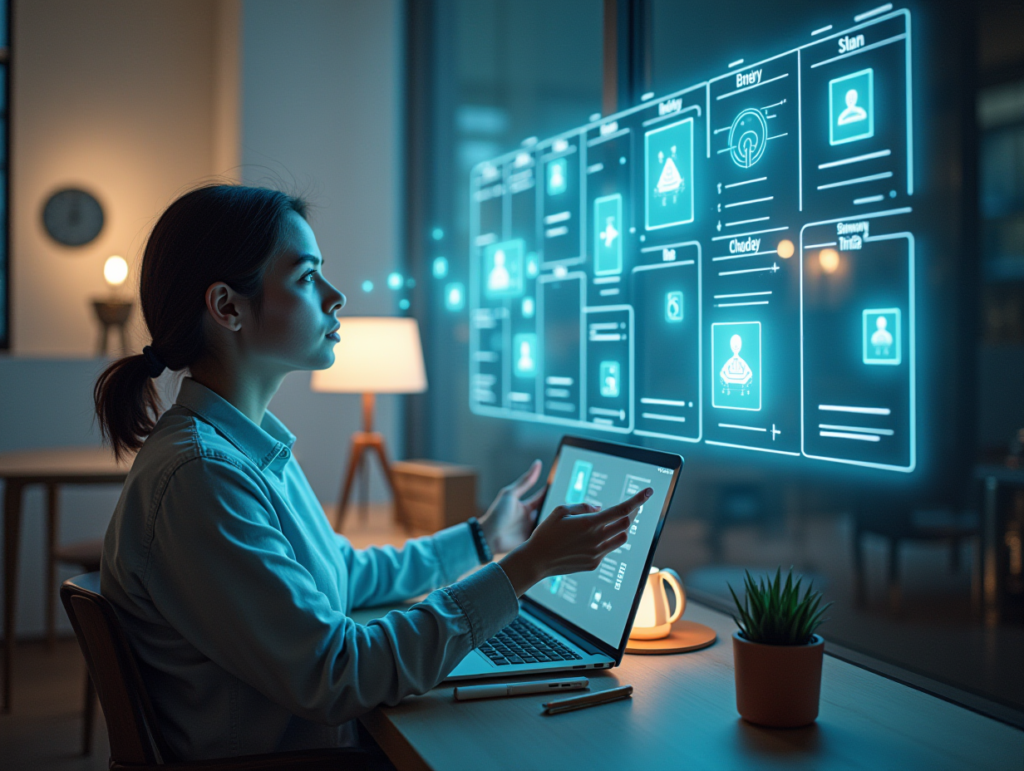
as we look ahead to AI in 2025, it’s clear that while the technology offers incredible benefits, it also brings along some hefty ethical and social challenges we can’t ignore.
Bias and Fairness
One big concern is the potential for AI systems to perpetuate or even amplify existing biases. If an AI is trained on data that reflects societal prejudices, it might make decisions that unfairly disadvantage certain groups. For instance, there have been instances where AI-driven hiring tools favored male candidates over equally qualified female applicants. To tackle this, it’s crucial to ensure that AI systems are trained on diverse and representative datasets and undergo regular audits to detect and correct biases.
Privacy and Surveillance
Another issue is privacy. With AI’s ability to process vast amounts of personal data, there’s a risk of intrusive surveillance and data breaches. People are understandably worried about how their information is collected, stored, and used. Implementing robust data protection measures and being transparent about data usage can help alleviate these concerns.
Job Displacement and Economic Impact
The impact of AI on employment is a hot topic. While AI can automate repetitive tasks, leading to increased efficiency, it also raises fears about job displacement. A report by the World Economic Forum suggests that AI could displace 85 million jobs by 2025 but also create 97 million new roles. The key will be in reskilling and upskilling the workforce to adapt to these changes.
Accountability and Transparency
Who’s responsible when an AI system makes a mistake? This question of accountability is complex. Ensuring that AI systems are transparent and their decision-making processes can be understood by humans is essential. This “explainability” helps in building trust and allows for better oversight.
Ethical AI Development
Developing AI ethically means considering its societal impact from the get-go. Organizations are increasingly recognizing the importance of integrating ethical considerations into AI development. For example, IBM emphasizes that diversity, equity, and inclusion are core to an AI innovation strategy, not only because it’s the ethical path but also because diverse perspectives lead to better outcomes.
Conclusion: The Future of AI in 2025
So, where does that leave us? AI in 2025 isn’t just about fancy gadgets or futuristic promises. It’s about integration—making AI a seamless, supportive part of our daily lives. Whether it’s boosting productivity, enhancing health, or unleashing creativity, the possibilities are endless.
But here’s the catch: we must wield this power responsibly. As I’ve learned firsthand, AI is only as good as the humans behind it. With the right mindset, AI in 2025 will be less about replacing people and more about elevating what we can achieve together.
What excites me most is that we’re not just bystanders in this AI revolution—we’re active participants. Let’s embrace it, challenge it, and most importantly, use it wisely.
